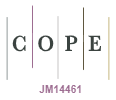Paulo Freire and Spain: influence, meetings, tributes and myth
DOI:
https://doi.org/10.5585/eccos.n52.17095Keywords:
Education, Spain, Franquism, Paulo Freire, Sectarianism.Abstract
This text is divided into three parts. The first deals with the influence of Paulo Freire's ideas at the end of Francoist Spain, therefore, in a clandestine way, in publications that could not come to light, without suffering symbolic and physical reprisals. The second deals with the presence of Freire, personally and through works, marking Spanish education and pedagogical thought in a broad and profound way, now, no longer clandestinely, since the country had left the long-running Franco dictatorship and consolidated its democracy. In the third and last part, the text deals with the dangers and pitfalls that Freire himself feared so much that it would happen with his legacy: the orthodoxy of those who appropriate his thought, closing it to dialogue and to the contribution of those who do not belong to the “sect” then formed. To fall into this trap is to deny Freire, who, in addition to differentiating radicalism (going to the roots of problems) from sectarianism (freezing and appropriating referential ideas), strongly appealed not to repeat him, but to reinvent him in each specific context.Downloads
References
Referências
AA.VV. (2014). La Prospe. Escuela Viva. Madrid: Queimada Ediciones.
Ayuste, A. (2006). Las contribuciones de Habermas y Freire a una teoría de la educación democrática centrada en la deliberación racional y el diálogo. En Ayuste, A. (coord.) Educación, ciudadanía y democracia. Barcelona: Octaedro.
Blanco, R. (1982). La pedagogía de Paulo Freire. Madrid: Ed. Zero.
Botey, J. y Formariz, A. (1989). Presencia de Freire en el nacimiento y evolución de las escuelas de adultos en Cataluña. Temps d’Educació, nº1, 255-272.
Cuadernos de Pedagogía. (1975). Conversando con Paulo Freire. Cuadernos de Pedagogía, nº 7.
De la Riva, F. (1998). Seis pasajes con Paulo Freire al fondo. Documentación Social, nº 110, enero-marzo, 145-158.
Flecha, R. 1989. Dialogando con Paulo Freire. Temps d’Educació, nº 1, 302-305.
Flecha, J. (2007). La presencia de Paulo Freire en España. Revista Interamericana de Educación de Adultos, 29, 146-150.
Freire, P. y otros. (1988). La animación sociocultural: una educación para el desarrollo. Madrid: Fundación Banco Exterior de España.
Freire, P. (1989a). Discurso de investidura. Temps d’Educació, nº 1, 300-301.
Freire, P. (1989b). La práctica educativa. Temps d’Educació, nº 1, 292-299.
García Madrid, A. (2003). Tres conferencias de Freire y una charla abierta con los alumnos de la Universidad Pontificia de Salamanca. Papeles Salmantinos de Educación, nº 2, 237-269.
García Madrid, A. (ed.). (2016). Freire en Salamanca. Madrid: PPC Ed.
Gómez, J. y Santa Cruz, I. (1998). Biografía, ideas y textos de Paulo Freire. Documentación social, nº 110, 215-230.
Mayordomo, A. (1997). Nacional-catolicismo, tecnocracia y educación en la España del franquismo (1939-1975). En Escolano, A.; Fernandes, R. (Eds.). Los caminos hacia la modernidad educativa en España y Portugal (1800-1975). Zamora: Fundación Rei Alonso Henriques, 147-174.
Monclús, A. (1988). Pedagogía de la contradicción: Paulo freire. Barcelona: Anthropos Editorial.
Sánchez-Valverde, C. (2018). Freire visto por Freire. La vigencia de la Pedagogía del oprimido. Revista Iberoamericana de Educación. Vol. 78, nº 2, 9-21. file:///C:/Users/anaay/AppData/Local/Temp/3283-Texto%20del%20artículo-2037-6-10-20181113.pdf
Trilla, J. (1988). Freire a Barcelona. El Diari del Movibaix, nº 5, 4.
Trilla, J. (1989). La relación teoría-práctica en la pedagogía de Paulo Freire. Temps d’Educació, nº 1, 243-254.
Trilla, J. (coord..) (2001). El legado pedagógico del siglo XX para la escuela del siglo XXI. Barcelona: Graó.
Trilla, J. (2006). A pedagogía da felicidade. Superando a escola entediante. Sao Paulo: Artmed Editora.
Trilla, J. (2018). La moda reaccionaria en educación. Barcelona: Laertes.
Viñao, (2014). La educación en el franquismo (1936-1975). Educar em Revista, nº 51, 19-35.
Downloads
Published
How to Cite
Issue
Section
License
Copyright (c) 2020 Ana Ayuste González, Jaume Trilla Bernet

This work is licensed under a Creative Commons Attribution-NonCommercial-ShareAlike 4.0 International License.
- Abstract 679
- PDF (Español (España)) 630







